
Carolyn Gramling is the Earth & Climate writer at Science News. Previously she worked at Science magazine for six years, both as a reporter covering paleontology and polar science and as the editor of the news in brief section. Before that she was a reporter and editor at EARTH magazine. She has bachelor’s degrees in Geology and European History and a Ph.D. in marine geochemistry from MIT and the Woods Hole Oceanographic Institution. She’s also a former Science News intern.

Trustworthy journalism comes at a price.
Scientists and journalists share a core belief in questioning, observing and verifying to reach the truth. Science News reports on crucial research and discovery across science disciplines. We need your financial support to make it happen – every contribution makes a difference.
All Stories by Carolyn Gramling
-
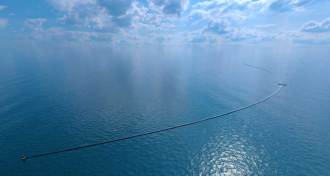 Oceans
OceansA massive net is being deployed to pick up plastic in the Pacific
As the Ocean Cleanup project embarks, critics remain unconvinced that scooping up debris is the best way to solve the ocean’s plastic problem.
-
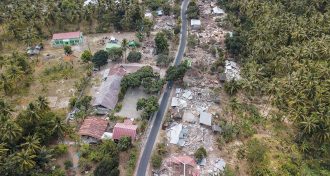 Earth
EarthArtificial intelligence could improve predictions for where quake aftershocks will hit
Scientists trained an artificial intelligence system to figure out where aftershocks are likely to occur.
-
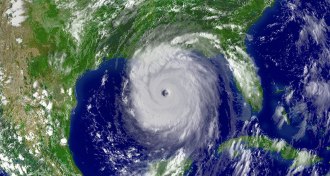 Climate
ClimateChances of an Atlantic hurricane season busier than 2005’s are slim — for now
The 28 named tropical storms that swirled through the Atlantic Ocean in 2005 is about as many as the region can produce in a year.
-
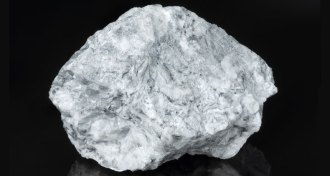 Earth
EarthScientists create a mineral in the lab that captures carbon dioxide
Magnesite takes a long time to form in nature. Now, a team has found a way to speed up the making of the mineral, which can store carbon dioxide.
-
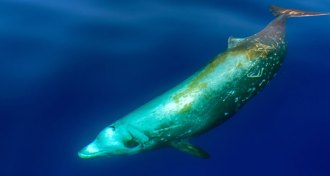 Oceans
OceansBeaked whales may frequent a seabed spot marked for mining
Grooves in the seafloor may signal that whales visit a region that is a prime target for future seabed mining.
-
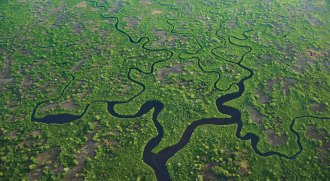 Ecosystems
EcosystemsA freshwater, saltwater tug-of-war is eating away at the Everglades
Saltwater is winning in the Everglades as sea levels rise and years of redirecting freshwater flow to support agriculture and population growth
-
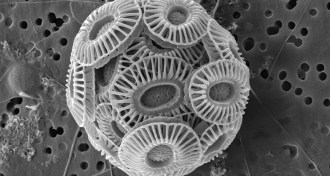 Oceans
OceansViruses may help phytoplankton make clouds — by tearing the algae apart
Sick phytoplankton shed their calcium carbonate plates more easily than their healthy counterparts, which could play a role in forming clouds.
-
 Earth
EarthWhy sea level rise varies from place to place
The impact of global sea level rise varies regionally, thanks to these factors.
-
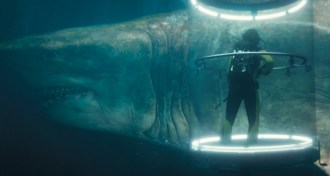 Paleontology
PaleontologyWhat ‘The Meg’ gets wrong — and right — about megalodon sharks
A paleobiologist helps Science News separate shark fact from fiction in the new Jason Statham film The Meg.
-
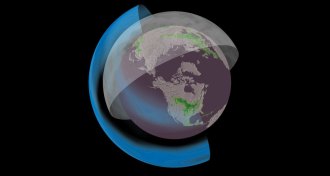 Earth
EarthGlobal dimming may mitigate warming, but could hurt crop yields
Injecting a veil of tiny particles into the atmosphere might reduce global warming, but it could also lower crop yields.
-
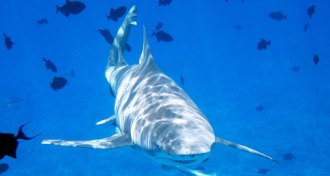 Paleontology
PaleontologyFossil teeth show how a mass extinction scrambled shark evolution
The dinosaur-destroying mass extinction event didn’t wipe out sharks, but it did change their fate.
-
 Earth
EarthRare blue diamonds are born deep in Earth’s mantle
Rare blue diamonds are among the deepest ever found, and hint at possible pathways for recycling of ocean crust in the mantle.